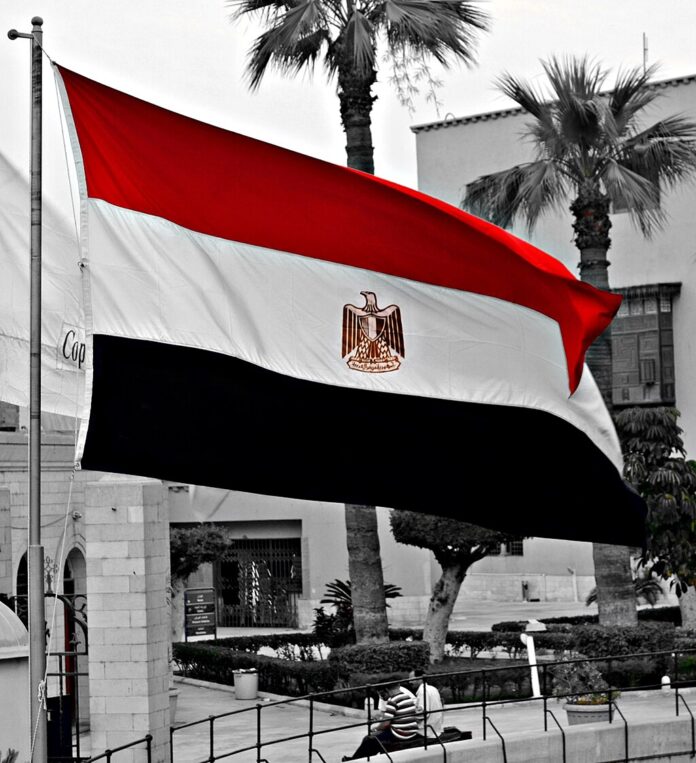Qatar denies involvement, accuses Egypt of unilateral changes to the ceasefire agreement, causing international tension
Egypt covertly altered the terms of a ceasefire agreement before delivering it to Hamas, according to a CNN report on Tuesday. Three anonymous sources revealed that Egypt modified the deal after it was signed by Israel but before it reached Hamas. This change has incited significant anger among Israel, the US, and Qatar, with one source claiming Egypt “deceived us all.”
A senior Egyptian intelligence official, Ahmed Abdel Khalek, reportedly orchestrated the changes. According to sources, Khalek provided different versions of the agreement to Hamas and Israel. Qatari Prime Minister Mohammed bin Abdulrahman bin Jassim Al Thani assured Mossad that Egypt acted alone in making the changes, as confirmed by two informants.
The ceasefire deal, announced by Hamas on May 6, diverged from the version constructed by the US and Qatar. An Egyptian source told CNN that Egypt received Hamas’s response and relayed it to Israel. The alterations led to confusion and frustration among all parties involved, with CIA Director Bill Burns, who helped orchestrate the original deal, reportedly furious and embarrassed by the unauthorized changes.
In Israel, protests erupted as citizens demanded the immediate release of hostages. Demonstrators in Tel Aviv blocked highways, expressing their outrage over the delayed and altered deal. The modifications to the agreement have further strained relations between Egypt and other involved nations, complicating efforts to establish a lasting ceasefire in the region.
The secretive changes have raised questions about Egypt’s motives and the transparency of its negotiations. The international community now faces the challenge of rebuilding trust and ensuring that future agreements are honoured without unilateral alterations.
Analysis:
Egypt’s secretive alteration of the ceasefire agreement with Hamas carries significant implications across political, diplomatic, and regional security dimensions. This move, revealed by anonymous sources, highlights the complex and often opaque nature of Middle Eastern diplomacy.
Politically, the unilateral changes by Egypt reflect a strategic manoeuvre to perhaps align the ceasefire terms more closely with its interests or those of Hamas. This action, however, undermines the trust and cooperation essential for effective diplomacy. The anger from Israel, the US, and Qatar indicates a severe breach of diplomatic protocol, which could impact future negotiations and alliances. Egypt’s actions may be perceived as an assertion of regional influence, challenging the roles of other key players in Middle Eastern politics.
Economically, the instability caused by such diplomatic breaches can affect regional economies. Investor confidence in the region may wane, and ongoing conflicts or disruptions in diplomatic relations can hinder economic development. The uncertainty surrounding the ceasefire and the hostage situation impacts both local and international economic interests, particularly in areas dependent on stability for trade and investment.
From a sociological perspective, the altered deal affects the populations of Israel and Gaza, exacerbating existing tensions. The delay in the hostage release and the ongoing conflict contribute to societal stress and humanitarian crises. Protests in Israel reflect the public’s frustration and demand for immediate resolution, highlighting the social impact of diplomatic decisions. In Gaza, the continued conflict perpetuates a cycle of violence and suffering for civilians, further straining the social fabric.
The role of international actors such as the US and Qatar in brokering the original deal underscores the global dimension of the conflict. The unilateral changes by Egypt not only strain regional relations but also complicate the involvement of international mediators. The credibility of these mediators is at stake, and their ability to broker future agreements may be compromised if such unilateral actions persist.
Gender perspectives also emerge in this context, as conflicts disproportionately affect women and children. The delayed release of hostages includes women and minors, whose prolonged captivity exacerbates their trauma and vulnerability. International efforts to address gender-based violence and protect women and children in conflict zones face significant challenges in such complex diplomatic environments.
Minority and marginalized communities, particularly in Gaza, suffer the most from prolonged conflicts and diplomatic failures. The altered ceasefire deal and continued hostilities deepen their marginalization, impacting their access to basic services, security, and economic opportunities. Efforts to address the needs of these communities must consider the broader diplomatic context and strive for inclusive and equitable solutions.
In conclusion, Egypt’s covert alteration of the ceasefire agreement with Hamas underscores the intricate and often contentious nature of Middle Eastern diplomacy. The political, economic, and social ramifications of this move are far-reaching, impacting regional stability, international relations, and the lives of ordinary citizens caught in the conflict. Restoring trust and transparency in diplomatic negotiations will be crucial for achieving lasting peace and stability in the region.
